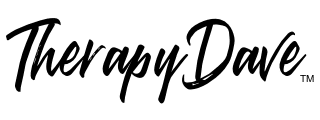Why do some adults have more struggles in life than others? Many times it relates to how dysfunction “entered” their childhood family. Such problems can arise from abuse, neglect, psychological abuse, immature parents, secrets in the family that impact others or an overwhelming sense of insecurity in the home environment. Understanding a few things might help in clarifying this tricky situation.
The first developmental stage and task of life is called “Trust vs. Mistrust”. It is critical that the child come to see the world as a trusting place where their need for love, food, nurturing, care, bonding, physical needs, health and so on are met. This is the task of the first year to two years of life, although it is the central theme throughout our life.
A “betrayal” by trusted others changes everything. It even changes how the rest of the family functions – how they trust or don’t trust.
The child becomes ejected forcibly from naive childhood development roles of innocence to pre-mature adulthood. It even changes the family and how they relate to each other, creating lots of grief and loss. It creates a sense of shame on the part of everyone. Worst of all, the child’s trust has been cruelly misused. The safety, sanctuary, of childhood has been invaded and betrayed by the very adults and family members that should have been able to provide for a safe place to grow and experience life normally.
A trauma is one thing. Repeated and “expected” injuries are another. When traumas become a part of the fabric of daily life, forgetting means losing access to one’s personal history – one’s whole childhood memories may be lacking. This is known as the “numbing effects of trauma.”
Stress arises from that which is denied. But eventually, the inescapable awareness that there is no way to escape the negatives blows away the illusions of safety and choice. Victimization itself constricts the range of choices available. This in itself constitutes an inescapable stress for people. The loss of illusions, including illusions about freedom-of-choice, can be one of the saddest casualties of victimization.
How to Help
- Openly admit that problems do exist.
- Don’t feel that what happened, or what you did, makes you a bad person in any way.
- Work to find ways to make changes in your life.
- Seek real help rather than just patchwork help ideas. Medications may help, but that is not the only answer.
- With traumatic situations, it is very important to reach out for psychological therapy. It is not a sign of weakness. It is a sign of strength to admit the need.
- Don’t get defensive.
- Apologize to those you have offended and talk about what they need from you to deal with the situation.
- Admit that you have hurt others and that they are now overwhelmed and insecure as a result of it.
- Know that nothing is going to change fast. However, this should not be an excuse; know that you have to work on it over time.
- Remember that none of us are perfect. We all struggle. The problem is that others from your past did not help you in the right way and so you lost your sense of trust and comfort – something we all need.
- Let go of “I should be able to be strong and deal with it by myself.” Real adults admit their problems and then seek out solutions in realistic ways.
- Let go of denial and stop trying to hide from it. Not talking about it does not make it go away.
